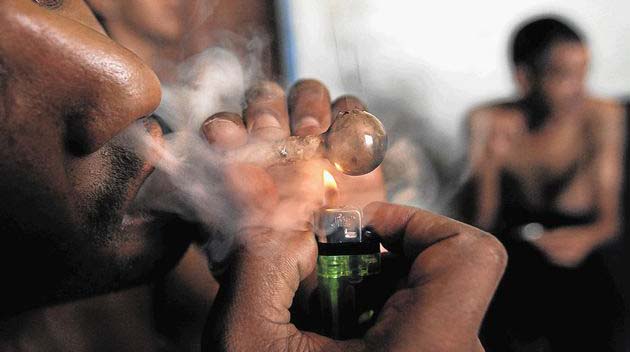Eight-year-old rehab inmate was ‘picking drug remnants left by guardian’
SOURCES close to the eight-year-old child who was this past week reportedly admitted among the first patients at the newly operationalised Victoria Falls Drug and Substance Rehabilitation Centre, have revealed that the minor was in the habit of picking and using toxic remnants of drugs from his own guardian.
The revelations have raised concern on the disposal of drugs and other alcoholic substance residue by families in an environment where there are children with an “innocent’ knack for experiments.
The child’s admission has sent shock waves through the community, serving as a distressing indicator of how the scourge of substance abuse is now ensnaring Zimbabwe’s most vulnerable and youngest citizens.
The facility, which became operational following a ZWG$1,8 million disbursement from the Government, represents a critical frontline response in combating the drug epidemic in the tourism capital.
During a visit by council officials and this news crew, the plight of the four current patients, including the minor, came to light.
While authorities remain tight-lipped on specific clinical details to protect patient confidentiality, anonymous medical sources close to the case have provide Sunday News with a glimmer of the progress so far.
The sources indicate that the medical team has made tremendous headway in stabilising the juvenile and commencing the delicate process of rehabilitation.
According to these sources, the child’s addiction pathway is one of the most tragic imaginable.
It is believed the eight-year-old was not using manufactured narcotics, but was instead picking up and consuming discarded remnants and residues of drugs from his guardian’s personal use.
This points to a severe case of neglect and environmental exposure, rather than voluntary experimentation.
Victoria Falls Town Clerk, Mr Ronnie Dube, confirmed the child’s presence at the centre while providing an update on the facility’s development.
“The project of the drug rehabilitation centre is complete. We have four inmates currently that we are attending to, the youngest being eight years old,” said Mr Dube.
He praised the Government’s directive for local authorities to establish such facilities, calling it a vital initiative.
The District Medical Officer declined to comment on the record, rightly stating that divulging specific patient information would be a serious violation of professional ethics. However, the anonymous reports of progress suggest the specialised care at the new centre is having a positive impact.
The case has ignited urgent calls for a multi-faceted approach that goes beyond treatment. Child welfare advocates and community leaders are emphasising the desperate need for robust preventative community programmes and stronger child protection services to shield the nation’s youth.
This tragic situation underscores a harsh new reality: Zimbabwe’s drug problem is not just a street corner issue, but one that has penetrated the sanctity of the home, with the innocent paying the highest price.
As the new centre begins its crucial work, the recovery of one eight-year-old has become a powerful symbol of both the profound depth of the crisis and the resilience of hope. Sunday News




